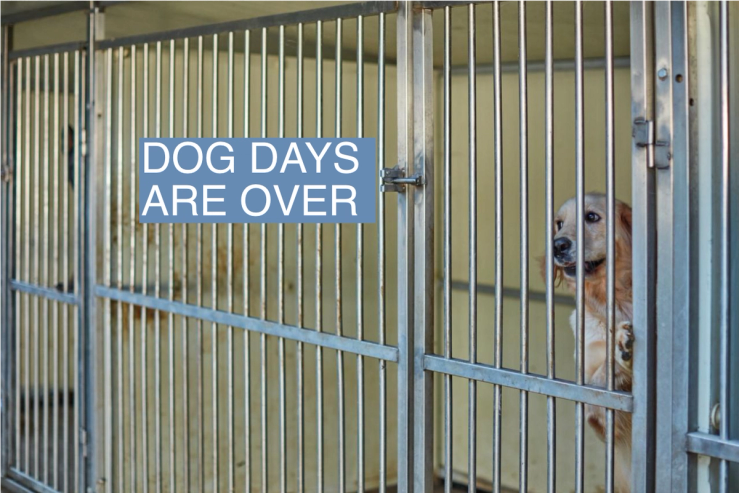The News
South Korean lawmakers voted Tuesday to ban the farming, slaughter and sale of dogs for meat, ending a centuries-old practice that has become increasingly rare in recent years as support for animal welfare has grown.
Only about 5% of South Koreans have eaten dog meat in the past year, according to a survey released this week by an animal-welfare think tank in Seoul, and 93% said they would not consume it in the future. While about 520,000 dogs were bred for meat in 2022, that number marks a 35% drop from five years earlier.
The full ban won’t go into effect until 2027, leaving dog-meat farmers three years to transform or shutter their businesses. At least one association of farmers has already said it plans to take its concerns with the new law to the country’s Constitutional Court.
SIGNALS
Eating dogs has long been a blight on South Korea’s international image
“For decades, eating dogs, to many South Koreans, has represented a societal sore — and a punchline from outsiders — having routinely attracted international scrutiny,” The Wall Street Journal reported. At times, Seoul has even denied that the practice existed. Dog meat consumption was more popular in times of food scarcity, such as during the Korean War, a representative of Humane Society International told CNN, but the economy and people’s food habits have changed, he said. But even Koreans who are against eating dog meat often bristle at outsiders shunning the practice, with The New York Times reporting that “to them, eating snails is unthinkable and force-feeding ducks to produce foie gras cruel.”
Dog-meat farmers have stalled past attempts to ban practice
Government initiatives looking into dog meat bans in South Korea have stalled in the past because of heated protests from the dog-meat-farming industry, Time reported. When the new bill was proposed in November, a group of the farmers threatened to release two million dogs near government landmarks in Seoul and the homes of lawmakers. Dog-meat farmers have said the ban will erase a piece of South Korea’s culture, in addition to cutting off their income. The chairman of their association told South Korean news outlet Chosun Ilbo that the solution is for the government to recognize dogs as livestock, not ban their consumption.
Animal rights activists celebrate growing number of bans across Asia
“I never thought I would see in my lifetime a ban on the cruel dog meat industry in South Korea,” said JungAh Chae, the executive director of Humane Society International Korea, adding that the country had reached a tipping point where most people reject eating dogs. Animal rights activists have celebrated the growing list of places across Asia that have banned dog meat, including Hong Kong, Taiwan, the Philippines, India, Thailand, and Singapore. But while dog-meat consumption has dropped in many places around the world, it’s on the rise in Indonesia, according to Al Jazeera.



